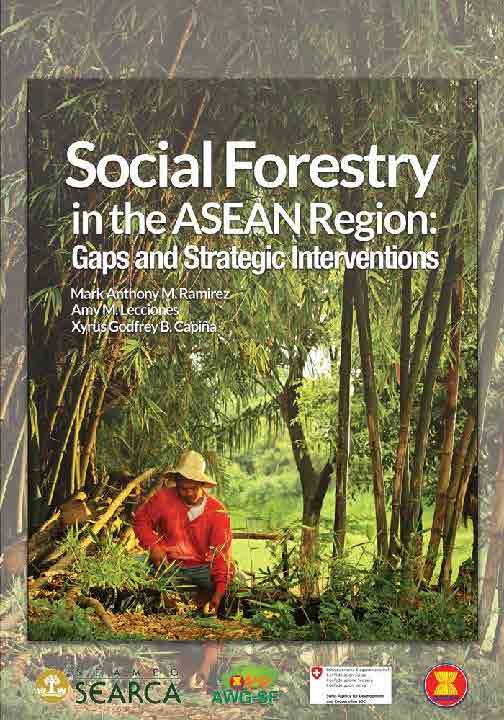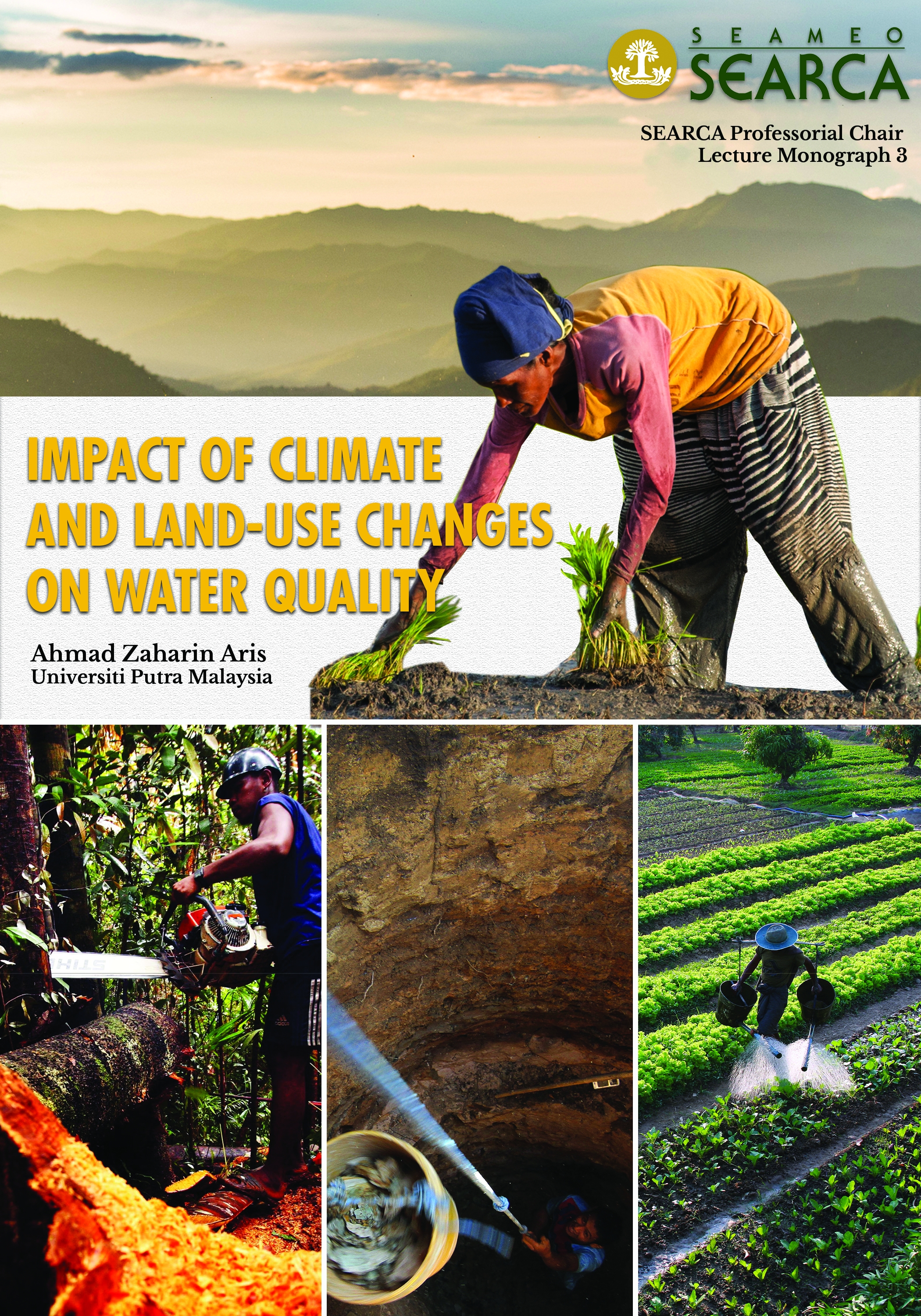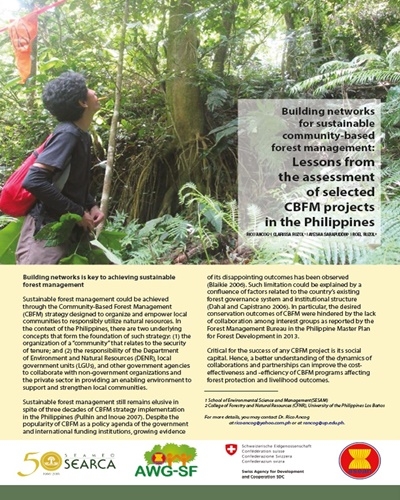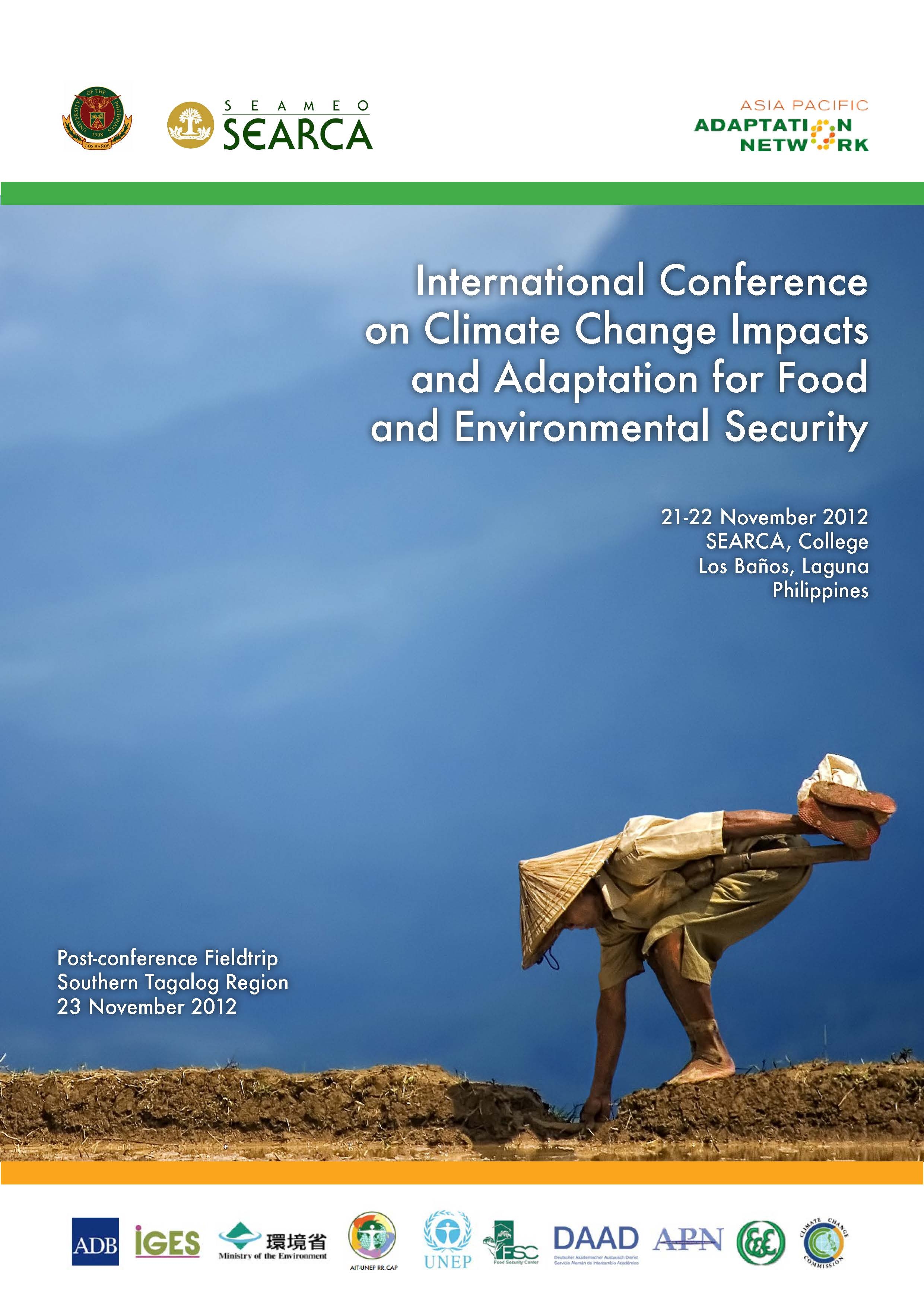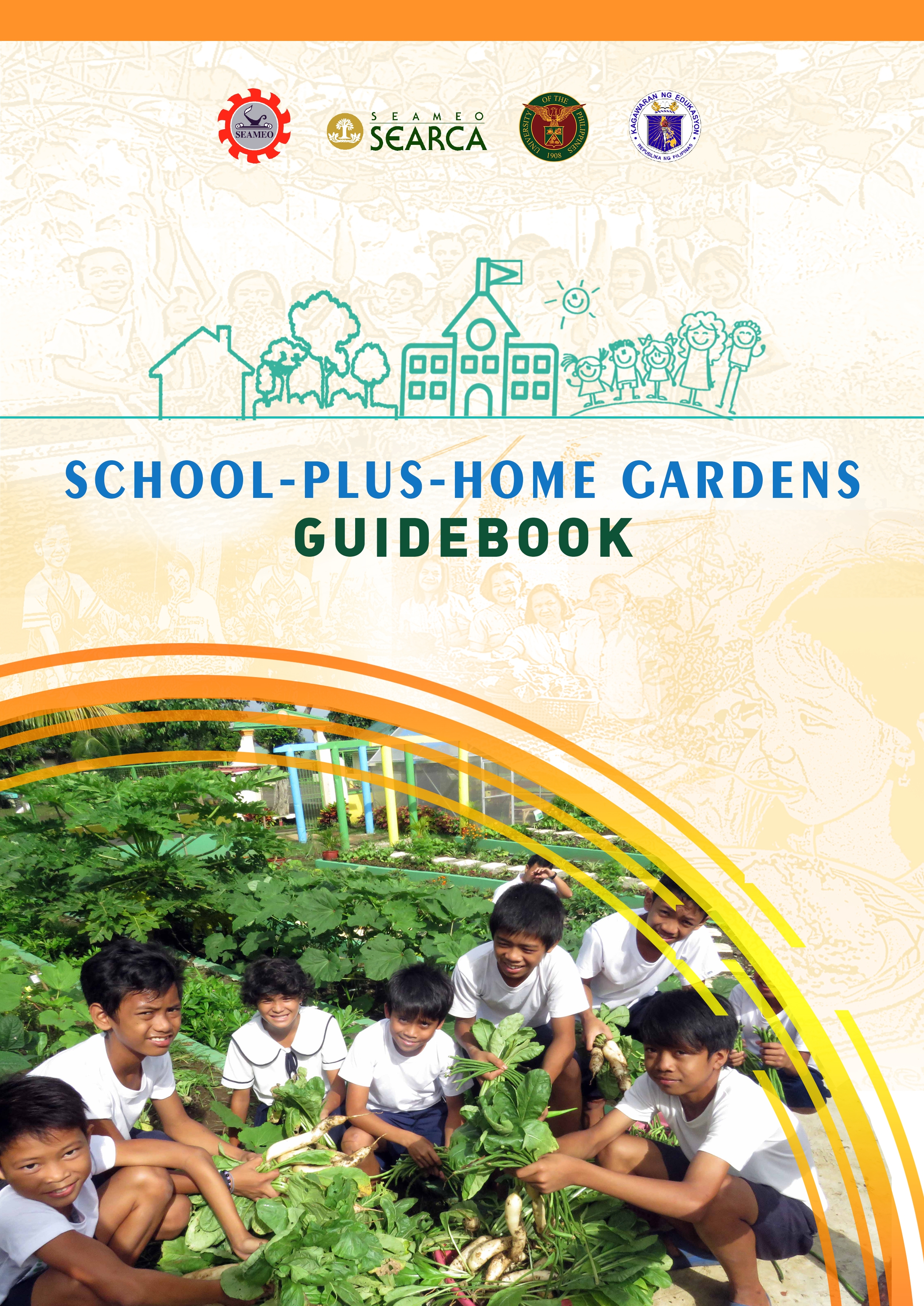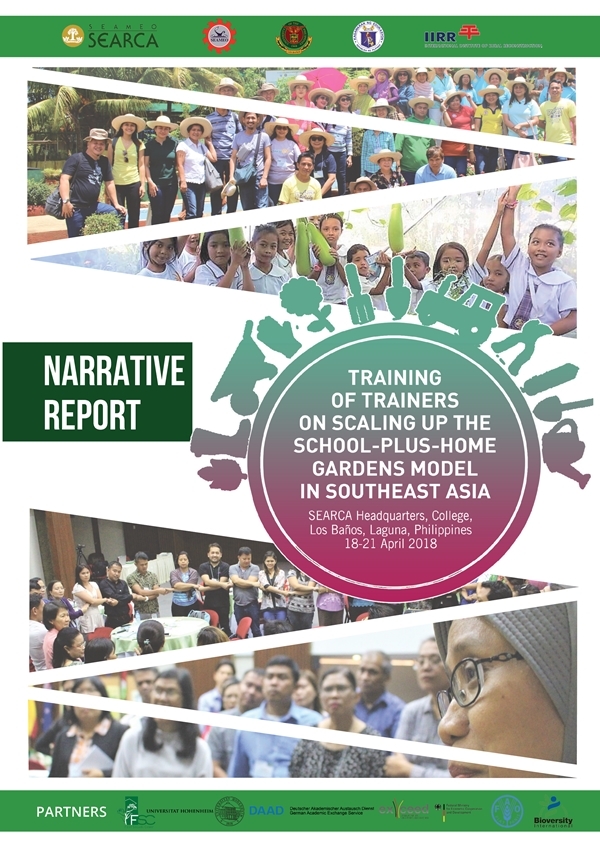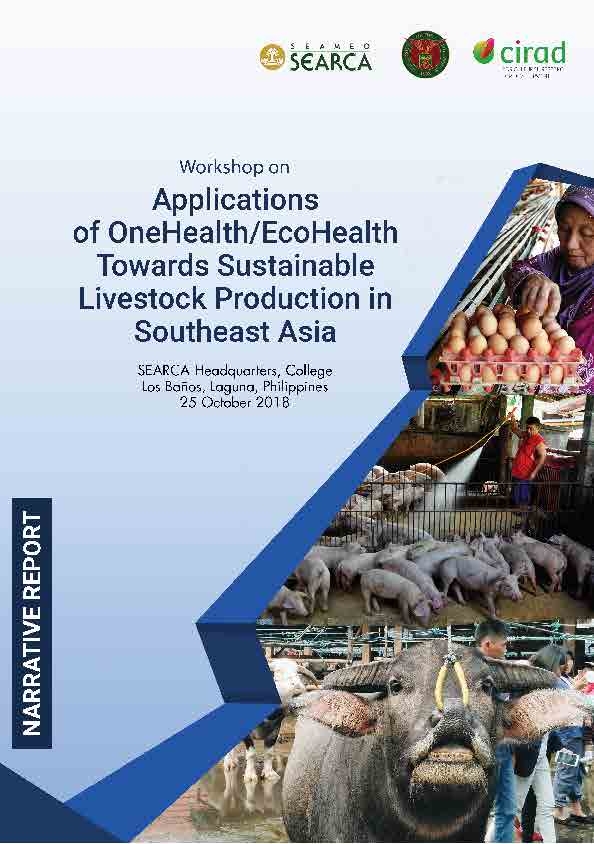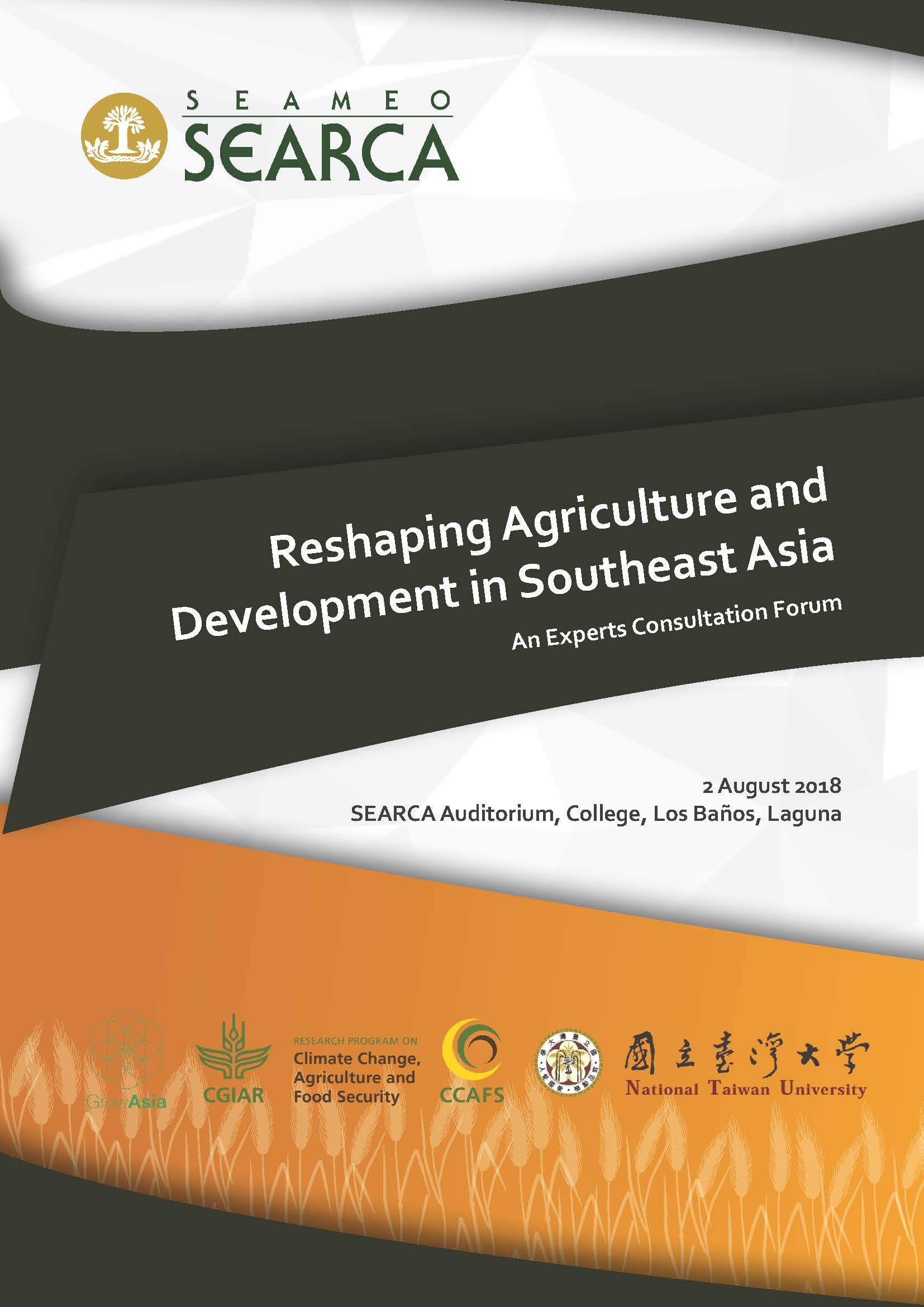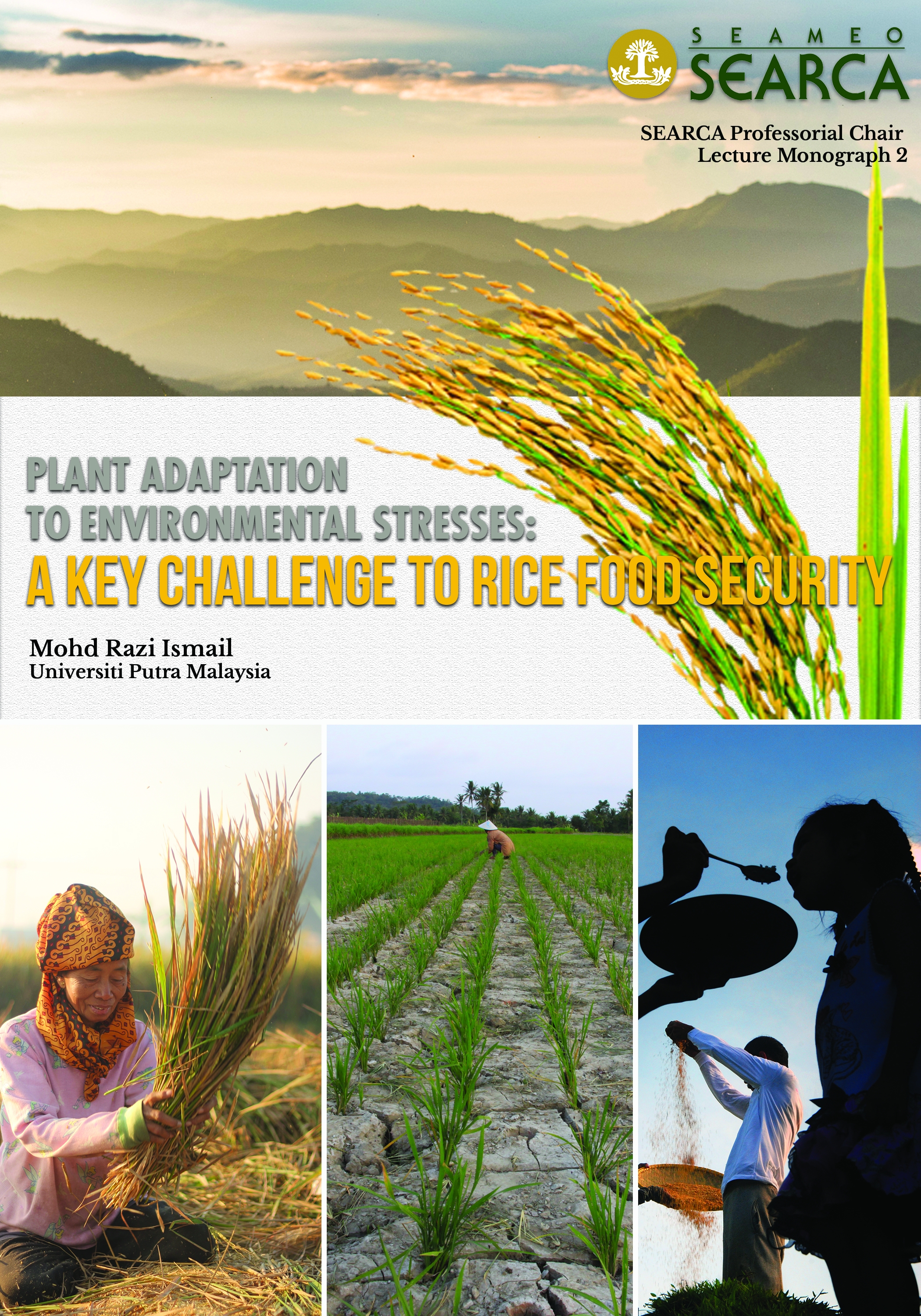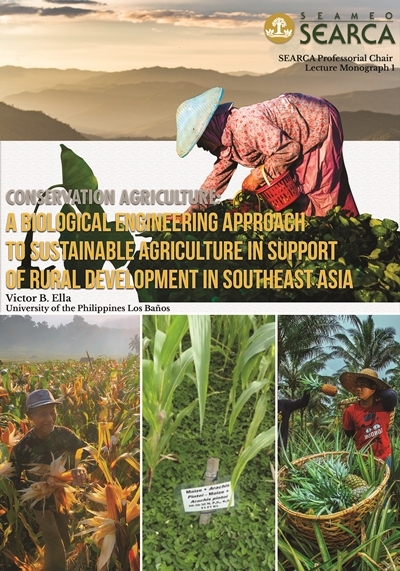Other Publications
The Southeast Asian Regional Center for Graduate Study and Research in Agriculture (SEARCA) is pleased to share with you this monograph on Social Forestry in the ASEAN Region: Gaps and Strategic Interventions. It is one of the publications supported under the ASEAN Working Group on Social Forestry Strategic Response Fund (ASRF), a grants program implemented by SEARCA through the support of the ASEAN-Swiss Partnership on Social Forestry and Climate Change (ASFCC), with funding from the Swiss Agency for Development and…
Years of unprecedented population growth; changing climate; rapid urbanization; and increased demand for food, irrigation water, and agricultural lands have put great pressure on both land and water resources. In developing economies, agricultural lands are expanding rapidly as people convert forestlands, wetlands, and other natural habitat. Forestry, agriculture, and climate change are closely linked together and pose a gargantuan challenge to humanity and to ecosystems. Agricultural intensification contributes to deforestation, and climate change increases the uncertainty associated with the future…
Sustainable forest management could be achieved through the Community-Based Forest Management (CBFM) strategy designed to organize and empower local communities to responsibly utilize natural resources. In the context of the Philippines, there are two underlying concepts that form the foundation of such strategy: (1) the organization of a “community” that relates to the security of tenure; and (2) the responsibility of the Department of Environment and Natural Resources (DENR), local government units (LGUs), and other government agencies to collaborate with…
This guidebook is based on the experience gained from the pilot project titled, A Participatory Action Research on School and Community-based Food and Nutrition Program for Literacy, Poverty Reduction and Sustainable Development, implemented by SEARCA, the Department of Education (DepEd)–Laguna, and the University of the Philippines Los Baños (UPLB). This Guidebook is meant for a wide audience, ministries or departments of education, local government units, and other development organizations interested in adopting the school-Plus-Home gardens model in their schools, community,…
The Southeast Asian Regional Center for Graduate Study and Research in Agriculture (SEARCA), together with the International Institute of Rural Reconstruction (IIRR), University of the Philippines Los Baños (UPLB), Department of Education (DepEd) Division of Laguna, and three of its sister regional centers under the Southeast Asian Ministers of Education Organization (SEAMEO), organized the “Training of Trainers on Scaling Up the School-plus-home Gardens Model in Southeast Asia” on 18-21 April 2018 at the SEARCA Headquarters, in line with efforts toward…
The Southeast Asian Regional Center for Graduate Study and Research in Agriculture (SEARCA), together with the University of the Philippines Los Baños (UPLB) and the French Agricultural Research Center for International Development (CIRAD), spearheaded the Workshop on Applications of OneHealth Towards Sustainable Livestock Production in Southeast Asia on 25 October 2018 at the SEARCA Headquarters in Los Baños, Laguna, Philippines. The workshop is a part of efforts to promote a holistic and interdisciplinary approach toward balancing productivity and sustainable development in the expanding livestock industry in Southeast Asia.…
In general, the experts consultation forum on Reshaping Agriculture and Development in Southeast Asia aimed to distill from current developments and emerging scenarios the opportunities and challenges for direction setting and strategizing toward an integrated AD agenda in Southeast Asia to proactively address these rapid changes.Specifically, the regional experts consultation forum aimed for the following: Analyze opportunities and challenges for agriculture and development in the Southeast Asian region in the next 5–10 years. Calibrate the thrusts and themes where regional…
Environmental stress represents the most limiting factor to food productivity. Not only do they impact the crops being cultivated, but they also hinder other agricultural crops from being introduced for production to areas that are not currently being used for agriculture. One major problem in global agriculture is the significant fluctuations in annual crop yields due to the unpredictable and varying environmental stresses (e.g., drought, flooding, salinity, and high temperature). Accordingly, environmental stresses are often characterized by the simultaneous occurrence of…
This paper intends to provide comprehensive ideas and information about conservation agriculture as a biological engineering approach to sustainable food production in support of rural development in Southeast Asia. The basic principles of conservation agriculture, its advantages and benefits, its evolution, state of adoption in the world and in Southeast Asia, some recent advances in terms of experimental research in Southeast Asia, issues, constraints and challenges to its adoption, prospects for adoption in the region, and some policy implications are…

